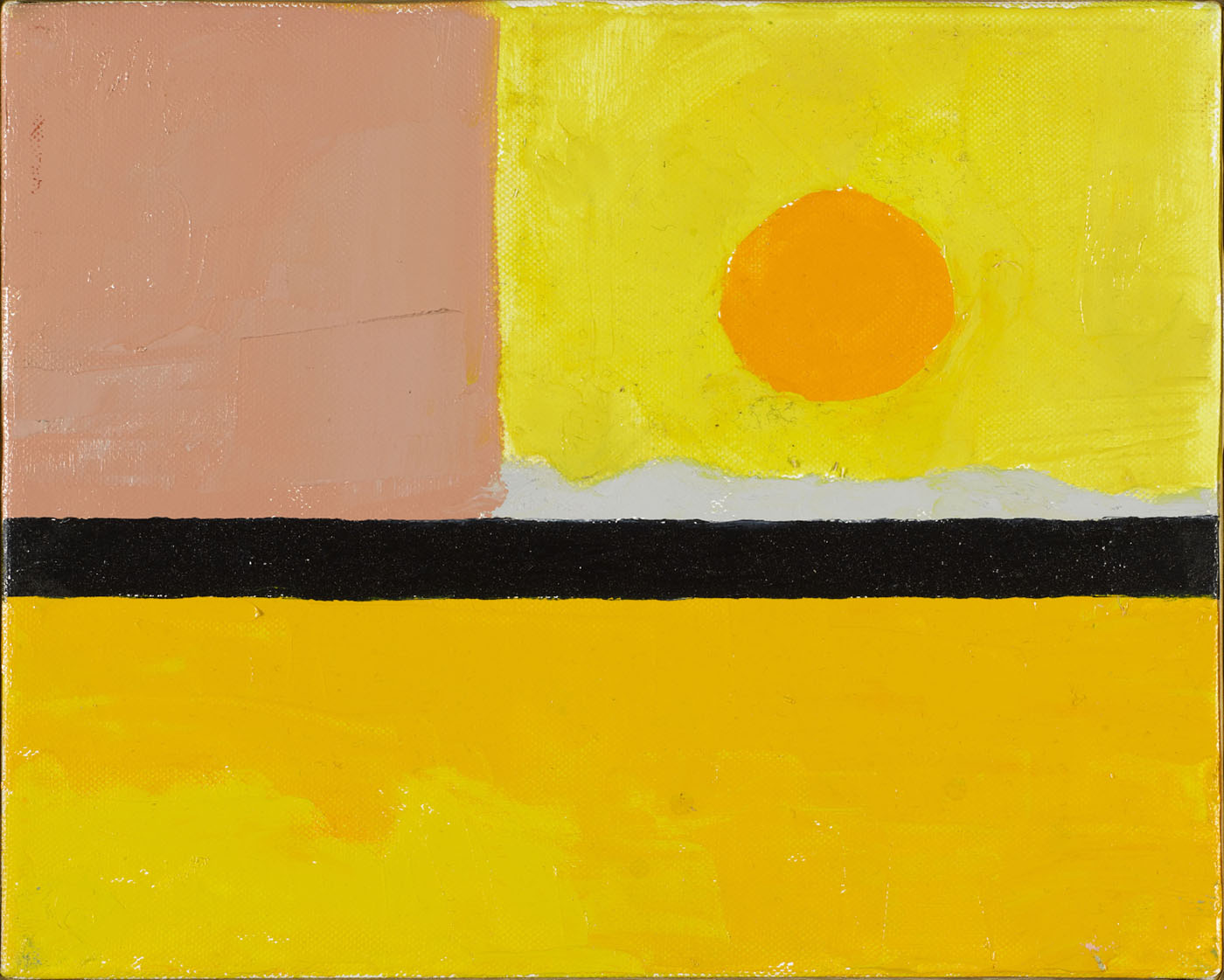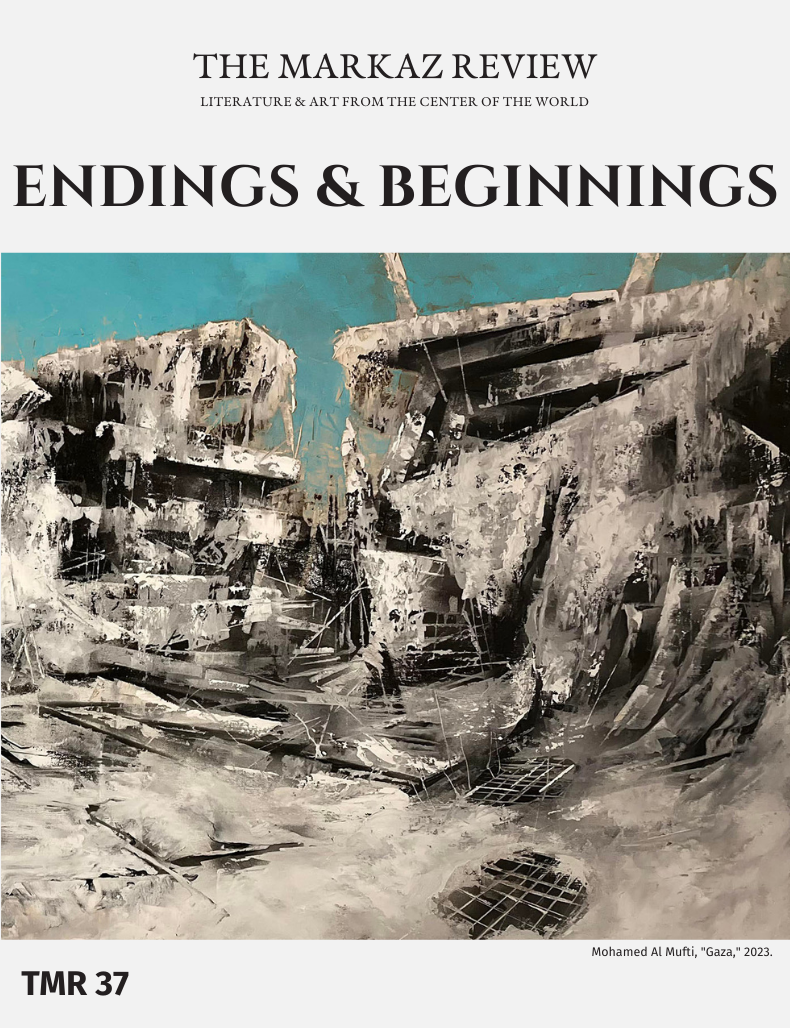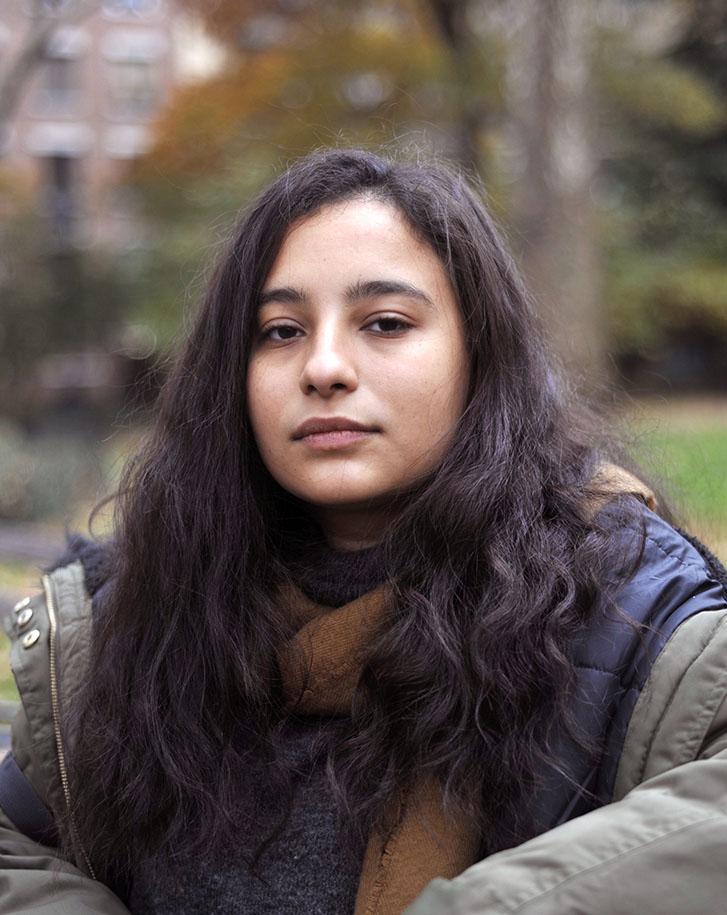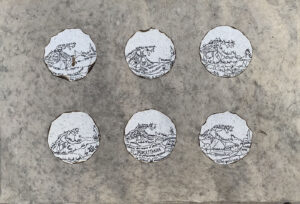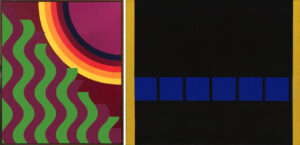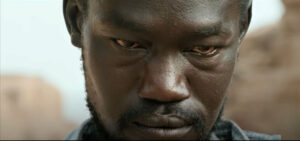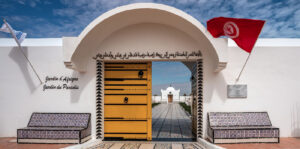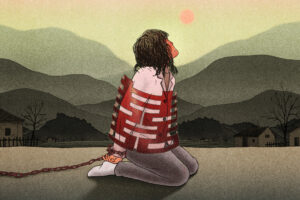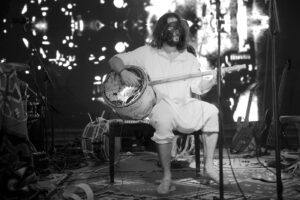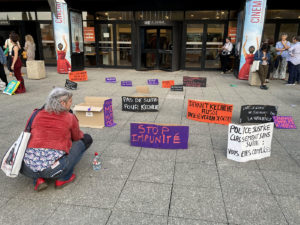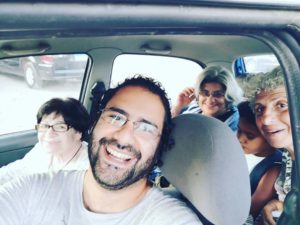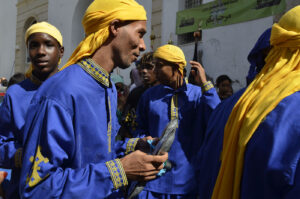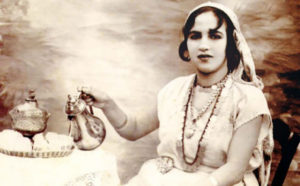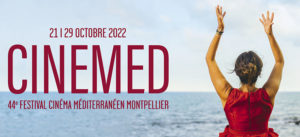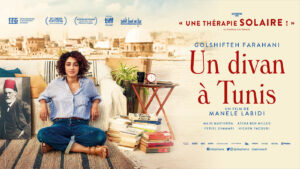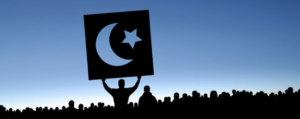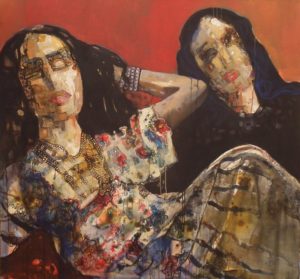The experience of a youth largely spent in an Arab world going through an incredibly volatile political climate could be characterized as a kind of whiplash...We are a generation that wakes up every day to move through a country — whatever that country might be – we recognize less and less.
I.
I was a child playing tag in the school courtyard when I first heard about it. None of us kids knew much about protests or revolutions, aside from the Egyptian and Tunisian revolutions being televised from our living rooms, and the French curriculum’s chapter on la revolution française. The idea of guillotines, blood-filled streets and guns led me to an initial feeling of paralyzing fear. But I was on a winning streak in tag, and I had to reach my safezone, before I could even give a second thought to the rumor that my best friend had shared with me. The school’s courtyard felt incredibly vast in those days, and as I ran across it, I was confident that I was one of the fastest ones in my grade. Life felt abundant, forgiving, and simultaneously out of reach, unable to catch up to speed with me. But that speed, and that youthful feeling of movement, is one I have not felt since that day in the middle of February 2011. I exited the iron gates of the school that afternoon, and my older sister and I were picked up by our driver. I thought more about the rumor on our way back home. As I watched us drive past all the colorful villas in Tripoli, Ameni and I asked our driver if the rumor was true. After all, I could still hear my sister’s voice echo throughout the house, as she said “Ben Ali hreb” (Ben Ali fled), just two months ago, as a reaction to the former president of our home country fleeing to Saudi Arabia. He responded confidently, “There is no way this would happen here. People are way too happy.” We looked over to his seat, and as he unlocked his Nokia brick phone, we noticed that his lock screen was a picture of Gadaffi. Ameni and I glanced at each other and didn’t say anything else until we got home, while our driver bopped his head to his Lady Gaga/Madonna mixtape.
II.
We sat in silence at the dining table until my father joined us and told us that we had to pack our bags, as we might be evacuated to Tunisia. In his voice was a tone of urgency that I was unfamiliar with. By this time, protests had started in Benghazi, and were more likely to move to the east. There were rumors that the French School was going to cancel classes the following week for security reasons, and we’d already been planning on going to Tunisia to spend time with our family for the midterm break. I entered my room, pulled my wardrobe open, and started pulling out some of my favorite winter clothes to pack in my suitcase. I made sure to pack my favorite purple sweater. Samira, my younger siblings’ nanny, came and sat next to me. She was eight months pregnant, and gave me a light smile as she combed her fingers through my hair. Samira was from Sudan. She’d been trying to reach Europe with her husband maybe over half a decade ago, and ended up getting stuck in Tripoli. She’d been working with us for at least two years at that point, and I remember that during my younger siblings’ playtime, Samira and I would sit next to each other, and she would sometimes tell me about the abuse she experienced during the first few years she lived in Tripoli, prior to meeting my family. The first families that hired her didn’t even pay her, only providing food and accommodation. Samira ended up giving birth in the house that we lived in a few weeks after we left. She named her daughter Khadija, after my sister, whom she loved as if she were her own.
That afternoon, I packed for a two-week holiday. It has since stretched into a 12-year separation. In the ensuing months, and with the help of our former driver who rented a truck, we were able to retrieve most of our things from our house in Libya, transporting them to Tunisia. Most of our furniture and clothes reached our house in Nabeul, but some things just never returned. The things that mysteriously disappeared were our vaccination records, Ameni’s favorite dress, the strange collage projects I did in my spare time, and some other memorabilia.
III.
We stood by the gate at Tripoli airport, waiting to board our flight to Tunis. I can’t remember much from the airport, except that it was awfully green. Usually, when traveling to Tunisia, we drove across the border, passing through different cities to see relatives before reaching our hometown Nabeul, but this time, we were flying there. My mother, my three siblings and I were leaving my dad, whose employer saw it as more urgent to evacuate families first, and then the rest would figure itself out. And so my father didn’t board the flight with us. I smiled at the air hostess, found my seat and sat down. My family sat in the row behind me. We’d first moved to Tripoli as a result of my dad’s work relocating us there in 2007, and while we knew we would eventually move out of the country, to be relocated elsewhere, I’d started growing an attachment to the life and friendships I’d built in the city. On the plane to Tunis, I looked out the window, down at the place I’d started to call home, in which my family and I had lived for the last four years. Tripoli passed quickly out of sight, and so did the one-hour flight. All of it was fleeting. But I remember some things clearly: the cries of the child sitting on the lap of the woman next to me. The ruffled pink keychain I was playing with. I lost that keychain shortly after arriving in Tunisia.
Since we left for that last time, I’ve tried to return to Libya, if only by trying to fill in the crevices left behind in my memory. There must have been a knot in my stomach taking shape, taking greater form as the months in Tunisia passed by, and as the years trickled and then gushed away from the day of our departure. I can’t identify the exact moment it happened, but I was soon swept along by the irreparable feeling that nothing would ever be the same. The world as I knew it was ending, but I was still a moving part of a world that never stops. We didn’t know this back then, but we were on the edge of history. Now we call part of that history a distant memory.
IV.
We celebrated my 11th birthday in my grandparent’s living room in Nabeul. I’d spent the last few weeks begging my parents to let me have a birthday party with all of my friends from school, only to end up celebrating it far away from them. My mother spent the entire day yelling into the phone, arguing with airline customer service operators, because my father was stuck in Tripoli, with very spotty communication services. That day there was no cake, no confetti and no celebration, because the major preoccupation was ensuring my father left Tripoli and returned home. If my memory serves me right, my grandma, Mama Rachida, gifted me with a perfume as a consolation for the underwhelming birthday. It was in the shape of a small bear, but the smell was so pungent that I never used it. I can’t remember who was around and singing me happy birthday. I didn’t even look up from the cake because I was incredibly upset. It was the lackluster, underwhelming birthday that was my biggest preoccupation, as opposed to my dad coming back home safely (which, as I would learn later, proved to be quite a struggle that cost both my parents a lot of effort). I have no idea why I decided that the age of 11 was a milestone I had to celebrate, but considering the events surrounding that birthday, it turned out to be an important age.
Mama Rachida left the room for a few minutes, and returned with a basket of oranges from her front yard and a few knives. I watched her peel the orange, grab a tissue from the Kleenex box, and hand me the orange, smiling, saying, “tfadhel Yesmine.” I spent the rest of what little winter there was left eating oranges every day. I ate oranges until the vitamin C kept me up at night. I became acquainted with sleeplessness. Those were the days of oranges, because that was when I discovered the fruits in my grandparents’ front yard. Or at least it is the earliest trace of overeating oranges in my memory. Now, this is the thing I long to return to, that feeling which belongs to my grandparents’ house, the place I yearn for most when I am outside the country.
It’s strange that my conception of home only begins then. At the age of 11. I think it’s because I don’t remember much of anything before December 2010. My memory blocked out most of what existed prior to that time. I think I gained consciousness with the Arab uprisings, and anything I can recall before that time can be equated to mythologies of a personal antiquity, or ruins of archeological sites — objects of fascination and speculation. My memories of 2011 are comparable to narratives on the foundation of nation-states; subject to rewriting and overriding, filled with strange gaps in remembrances and simultaneously with vivid details, embellished in hindsight: memories that usually yield more questions than answers. More than anything, it is the foundational story of the person I am: who I once was, and who I have grown to become. Overeating oranges has since become a ritual of all the subsequent winters I’ve since spent in Nabeul.
V.
We would cycle across the city from my grandparents’ house to the French school. My uncle, Khali Mourad, took us to school like this almost every single day. I rode on the back of his bicycle, my younger brother behind me. I’m not sure how we both fit in the back of Khali Mourad’s bike. I often scolded Ahmed for making us late. Nabeul felt so large when we biked through it in the early mornings. Today, I know that the actual distance is much shorter than I thought it was.
Sometimes, Khali Mourad stopped on the way to buy us croissants. I knew we were close to school when we passed by the Ibn Khaldun bust on the roundabout. When, in subsequent years I talked about my time living in Nabeul in 2011, I would often tell people I lived there for three months, but in actuality, the time my family spent there was closer to six months. I don’t know why I shortened my stint in Nabeul the way I did. Time must have warped my memories, or my memories might have warped time, and split it in half.
Ahmed and I were always the first students to arrive at school, because Khali Mourad had to go to the school he taught at, located on the other side of the city. I remember one day I was really excited because we were having rugby practice for an upcoming tournament. I was getting really good at the sport because I had no fear of getting hurt. We had our rugby practice in the gravel courtyard, and as we were playing that day, a girl started throwing rocks at me. Someone told the headmaster about the incident, and when she asked me about it later, I denied it. I didn’t want to be a victim, and I didn’t want to be a snitch either. A few weeks later, I ended up befriending my bully. I didn’t particularly fit in well at school. It was a small French school, with around 60 students in total, and they’d all known one other since kindergarten.
Lunchtime must have followed rugby practice. Sometimes it was my parents, but most of the time it was Khali Mourad who picked me up from school and took me to my grandparents’ house to eat lunch. I spent a lot of time at my grandparents’ house because my parents left me and my younger siblings there under the care of my grandparents and my Khali Mourad as they ran errands between different cities. In those days, my parents were surrounded by clouds of whispers. I only caught inaudible words from across rooms, dining tables, corridors, and from the backseat in the car. I barely have any memories of my parents in the months that we lived in Nabeul. The gap of my parents from my memory must be because of how busy those months were for them, and how they tried to uphold a version of reality that wouldn’t cause my siblings and I to panic. I barely felt the revolution.
I would often ask my uncle if I could borrow his laptop to scroll through Facebook. My parents had let me make a Facebook account on the 16th of December, 2010. I put down my birth year as 1998 to be old enough to sign up. After our departure, I needed Facebook to keep in touch with my friends from Tripoli. On the 27th of March 2011, my Facebook status read “vs me manquez beaucoup” (I miss you a lot), a message to my friends in Tripoli. We made a group chat, my friends and I on Facebook, where we promised we would all reunite once again in Libya. I never used Facebook to understand what was happening in Tunisia or elsewhere. It was as if the world didn’t exist outside of the ten kilometers spanning my grandparent’s house to ours, or the small group of people who made up the entirety of those I knew. In the afternoons, when I did my homework on the living room couch, my grandpa Baba Latif was glued to the television, and news anchors were a constant background noise. I probably felt the resonances of the changes happening outside, but I was disoriented and confused, unable to grasp the events happening. I didn’t know I was living under a dictatorship, and that my home country had a dictatorship, so how could I understand the fight for freedom or dignity? I only understood that there was change: that I’d changed schools, changed cities, that my family and I were living in the house we usually only stayed in during school breaks. Perhaps I knew that more change was coming. Still, I thought of our chapter in Nabeul as just a temporary arrangement until the academic year ended and we could go back to Libya.
VI.
We watched Gadaffi’s assassination on Al Jazeera’s news channel from our living room in Dubai on the 20th of October, 2011. My mind shifted from his glorious billboards that had been all over Tripoli, to his televised last breaths and blood-covered head. I looked away too late, and the ghastly image has since become etched in my memory. I could still hear Gaddafi’s iconic speech from the 22nd of February, 2011, as a reaction to the violent unrest against his country: “beet, beet, dar, dar, zanga, zanga, ferd, ferd!” — a promise that “we will march in our millions, to purify Libya inch by inch.” His speech became a viral remix, and that might be the real reason I remember parts of it. I felt a great degree of nostalgia for my time in Libya, because at that point, I had been to three different schools in the span of a year, in Tripoli, Nabeul and in Dubai, and I missed my friends from Tripoli. Our promises to reunite at school were never realized. I never saw those friends again. I lost touch with everyone I knew from school in Libya, and their profile pictures have since become solely icons on my Facebook friends list. We were never meant to live in Libya for more than four years, but I never got the chance to close the chapter the way I wanted to. The incompleteness of my life in Tripoli haunted me. My mind completely disconnected from Libya sometime in the following decade, and I gradually grew to realize the impossibility of my return.
My family and I still recall memories of Libya every now and then, oftentimes with a tinge of expat nostalgia, the way all the non-Libyans who used to live in the country recall how great it was to live there. For foreigners, it was cheap, family friendly, and a great place to make savings. But I knew there was a disconnect between the expat nostalgia in my mind and the social dissatisfactions that must have led to the protests. Most expats, once their work contracts were over, would pack up for the next place. We were one of those people. I never got the chance to have a love-hate relationship with Libya, as I do with any other place I’ve lived in since then. Instead, I am confronted with the rose-tinted glasses that piece together a perfect place from my fragmented childhood memories. In 2011, all I wanted was for the sense of volatility to end, for a sense of security and stability to return. But since the volatility never ended, the only other choice was to forget and shut it all out. And now that almost everything is lost, I am filled with regret — that in the face of history, I chose to forget.
VII.
When people ask me about the Arab uprisings, I don’t really know what to say, or rather, I don’t know where to start. The fragments of memories that I’ve constantly revisited hoping that this would record them more indelibly in my mind are in fact being constantly rewritten with each of my recollections. I learned in an introductory psychology class that memory is not a tape recorder, but rather a constant reconstruction. I don’t feel secure in my memories. With a decade of telling and retelling, writing and re-writing our departure from Tripoli, I am uncertain of the structural integrity of my memories. What I do know is that I grew up on the promises of a revolution, and that promise soon soured two years after I voted in the Tunisian presidential elections in 2019. That experience of a youth largely spent in an Arab world going through an incredibly volatile political climate could be characterized as a kind of whiplash. I can’t tell you the exact moment when the collective feeling flipped from hope for a better tomorrow to a disillusionment about the failed promises of that future, because we all came to it at different times. We are a generation that wakes up every day to move through a country — whatever that country might be – they recognize less and less. I can’t claim that only young people feel it; it reverberates across the spine of entire societies.
In the summer of 2023, Mama Rachida was hit with a realization that may have been more painful for her than it was for us. She said, “We hoped our grandkids would live better lives than us … but I don’t think it will be the case.” My youthful dream of becoming a historian when I grew up was in the hopes that I would come to understand the historical events that have impacted the world through which I move. I was hoping that my sense of estrangement would be justifiable through the lens of history, but I’ve since started theorizing the concept of a contradictory historical experience. It’s where practice and discourse diverge, where those who participated and witnessed the thawra — in any part of the Arab World — are both agents and subjects of historical change, finding themselves in between the interwoven strings of what is happening. My historical training has encouraged me to find different factors and explanations for events, to try to consider a well-rounded perspective of narratives to explain a series of events. And yet when I look inwards, to the historical events that impacted my life, such as the revolution, I find myself out of words. Unable to explain what happened, or my nuanced stance, because I, like many others, am trying to untangle these strings, finding myself caught in the knots and fibers of history.
When the Libyan civil war started in 2011, I felt a sense of my youth evaporating, as it grew clear that I couldn’t count on any of the places I’d lived to remain stable, as possible safety nets to which I could return. In the face of change, I’ve watched members of my family become nostalgic for the good old days, and, aware that they are unable to return to the past, have expressed increasing desires to instead leave Tunisia and restart their lives elsewhere. My nostalgia came from a place of youthful naivete, as I reached the conclusion that my return is never guaranteed because even if when I physically return to a place, I am met with deficits, decays, and absences. I long for the rejuvenating feeling of possibility, of new beginnings, but until then, I return to the past as a promise, hoping I can rebuild it, out of disjunctive memories and incomplete stories.



